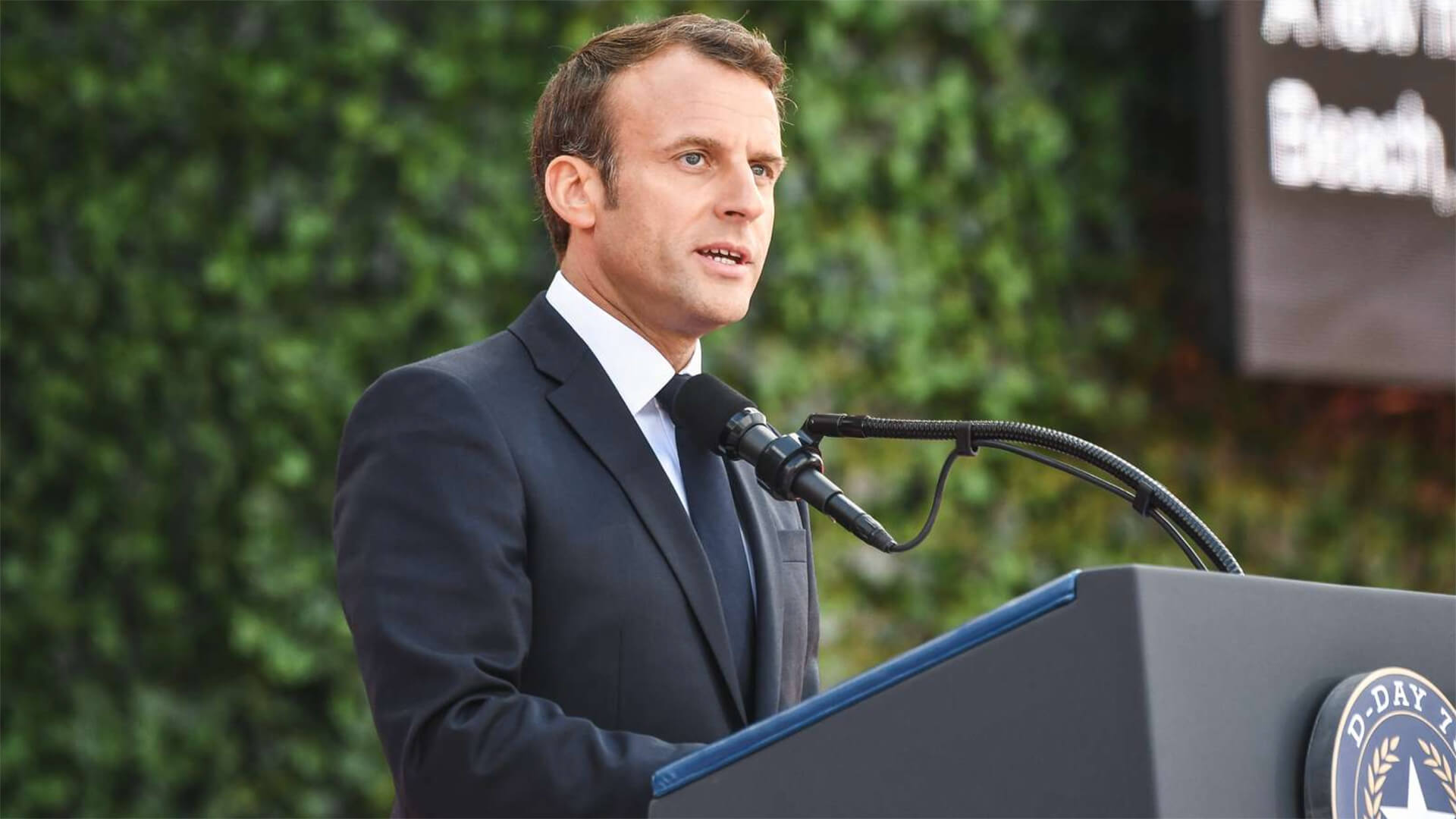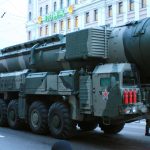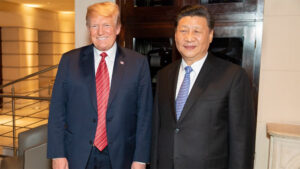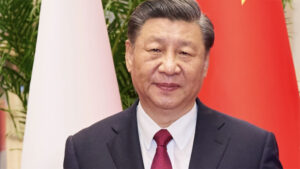Today’s video is coming to you from Charteris Bay, New Zealand.
The week’s major news is that French President Macron is trying to bring Chinese President Xi to his senses. As Macron urges Xi to drop his support of Putin and the Russian war on Ukraine, we need to see why this conversation is even happening.
Russians like to blame the Americans for their shortcomings, and while this may have held some truth in the years following the Cold War, just about every country out there has an anti-Russian policy. The Chinese have jumped on the bandwagon and want to blame the US for their issues, but now most countries have developed their own anti-Chinese policies.
As the US steps back as the world’s police, these countries’ policies will play an even bigger part in the international space. While countries like the US and France may still operate as partners, each will put its own interests first. And countries like Japan, Taiwan, Vietnam, Australia, and India can even shape how China interacts with the rest of the world.
So what does all of this mean? China is simultaneously dealing with a multi-vectored opposition and mounting internal struggles. Between impending demographic collapse, single-pronged politics, and a crumbling financial system, the world can sit back and watch the Chinese system implode.
Prefer to read the transcript of the video? Click here
Here at Zeihan On Geopolitics we select a single charity to sponsor. We have two criteria:
First, we look across the world and use our skill sets to identify where the needs are most acute. Second, we look for an institution with preexisting networks for both materials gathering and aid distribution. That way we know every cent of our donation is not simply going directly to where help is needed most, but our donations serve as a force multiplier for a system already in existence. Then we give what we can.
Today, our chosen charity is a group called Medshare, which provides emergency medical services to communities in need, with a very heavy emphasis on locations facing acute crises. Medshare operates right in the thick of it. Until future notice, every cent we earn from every book we sell in every format through every retailer is going to Medshare’s Ukraine fund.
And then there’s you.
Our newsletters and videologues are not only free, they will always be free. We also will never share your contact information with anyone. All we ask is that if you find one of our releases in any way useful, that you make a donation to Medshare. Over one third of Ukraine’s pre-war population has either been forced from their homes, kidnapped and shipped to Russia, or is trying to survive in occupied lands. This is our way to help who we can. Please, join us.
CLICK HERE TO SUPPORT MEDSHARE’S UKRAINE FUND
CLICK HERE TO SUPPORT MEDSHARE’S EFFORTS GLOBALLY
TRANSCIPT
Everybody. Peter Zeihan here coming to you from Charteris Bay on the South Island of New Zealand, just outside of Christchurch. This is going to be one of my last recordings from New Zealand, but these are all being released out of order based on current events. So you’re going to see a little bit more of this gem that I used to call home in the weeks to come.
Anyway, the big issue from this last week, from my opinion, was that French President Macron has been visiting China to have talks with chairman is using ping and to try to talk him out of some of his degree of support for what’s going on in the Russian invasion of Ukraine. Now, Chinese media has been blaring about what a wonderful summit this is and France’s idea of strategic independence, the idea that France, specifically in Europe in general, don’t have to follow the cue of the United States.
They’ve been really hitting that hard. And it kind of shows the degree of political disintegration within China has now even reached the diplomatic core. Let me unpack that a little bit. So one of the things that the Russians have always believed that the Chinese are now starting to say that they believe is that behind every plot and every downside and every setback that Moscow and Beijing have ever experienced is the American hand and that the Americans have been orchestrating and creating this alliance in order to contain and beat them back.
And during the Cold War, there was definitely something to that, because the policy really was containment. And in the aftermath of World War Two, all of the traditional powers that had bordered, the Soviets were broken in one way or the other. So the United States physically reconstructed them, provided them with economic aid, created a global system that allowed them to trade and access energy and markets.
And as a result, the United States received the authority to set their security policies. And while that certainly did contain and ultimately beat back the Soviet Union, it also gave the Soviets a lot of space. Because if you look at the time before 1945, the Soviets were dealing with a couple of dozen major countries, all of which had their own interests and all of them which viewed Russia as a mortal threat.
So whether it was Finland or Sweden or Norway or Denmark or Poland or Germany or France or Turkey or Japan, each of these independent countries had their own anti-Russia strategy. And one of the reasons why the Russians are so hosed now is a lot of these countries are coming back into their own because we are entering a post-American world.
Yes, the United States is, to a degree, riding a herd on what’s left of the alliance structure. But because the United States is a military structure has shifted now, because it’s now super carrier focused as opposed to having hundreds of ships, it can be everywhere at once. The United States just physically can’t be there at any given time.
And in the aftermath of the war on terror and the Iraq conflict, the United States isn’t going to be deploying land troops on a global basis for a very long time, if ever again. That leaves it to these independent countries to look after their own policy sets. And they have, historically speaking, been far more incisive, using far more invective and far more subtle and far more disruptive and far more subversive than anything the United States has ever done.
Yes, the United States is has been and will remain the single most powerful player, but it’s not the only one. And because of the nature of American foreign policy making, where you’ve got the president and the secretary of state and the national security adviser, and that’s about it. That’s the decision makers. The U.S. really has a hard time focusing on more than two or three things at a time, whereas if you’re in, say, France, you can focus on issues closer to the horizon with more intensive ness.
And so the Chinese inability to make this distinction means that they’re preparing for a world where the United States is riding herd in an alliance that doesn’t exist. And that means everything else is going to be able to come through the crap, because anyone who has studied French policy knows that the French are wildly creative at causing problems for countries they don’t like, for whatever reason.
So are the French and the Americans going to operate side by side with no light between them? No. The partners were friends to a degree. We’re even family, but we don’t always see the things through the same light. And yes, Washington does find that annoying from time to time as the French, from our point of view, go off.
But the French are doing things for the French and they’re not for certainly not doing it for the Chinese or the Russians. So that’s kind of piece. One piece to is look at the array of countries that are going to be doing this. The French are actually a minor power in the East Asian sphere. I would be far more concerned about countries like Japan, which has the world’s second largest blue water navy, who has the capacity of shutting down the sea lanes that go to and from China without help from the United States.
I’d be worried about the Taiwanese because, well, militarily, they’re not going to conquer the mainland anytime soon. They still have the intelligence apparatus operating within China already. This is the only thing that they care about because a significant amount of harm and disruption and of course, gather information for others and worry about Vietnam, which has a coastline on the South China Sea that’s over a thousand miles long.
But the Chinese have to sail down. The Vietnamese don’t even need a navy to disrupt Chinese commerce. I’d worry about Australia, which is in the process of building nuclear submarines and more importantly, mid-range air launched cruise missiles, which could disrupt everything the Chinese can do. I would worry about India, who doesn’t even have to leave home in order to completely wreck the Chinese economy.
None of these countries, with the possible exception of Australia, really operate as deputies of the United States. All of them are creative. All of them have their own capacities and all of them have their own reasons for tearing down the Chinese system in its current form. China is dealing with a multitude vectored opposition of countries that can think for themselves and act for themselves.
Now, why would the Chinese let them fall into this trap? I mean, this really is Soviet style groupthink in play here. Are the Chinese smart or don’t they think three steps ahead, aren’t they the chess players while the Americans are the checkers players? Yeah, that’s a bunch of bullshit. About seven or eight years ago, the cult of personality forming up in China reached the point of no return, and it started taking the official form of something called Jinping thought.
And that sounds a little bit groupthink ish. It’s because it is. The idea is not only do we have a party ideology, we have one dude who’s setting our goal, setting the process that we use to think and evaluate everything. And we need to all think like him. So in his first five years as Premier, she purged the party of everyone who was an alternate power center against him.
And in the second five years, he went against anyone who has any independent decision making at all. So there’s no one left. It’s just him and his little form of groupthink is now all that is left. So Chinese diplomacy, Chinese defense planning used to be multifactor. They used to have a good intelligence system. They used to have a good propaganda system.
But over the course of the last few years that has dissolved completely and all that is left is this monochromatic thought process that is fixated on a story that is wildly inaccurate, and that is what guides all Chinese decision making now. For those of you been following for me for a while, you know, I think that the demographic situation in China is far passed terminal.
It’s a country killer, you know that. I think the financial system is far passed terminal and that’s a country killer. And now we have a race with political incompetence as to what is actually going to kill the country first. Now and the long view of history. It doesn’t really matter if you’re killed by the car wreck falling off of a cliff or heart disease.
But for playing up the history in the here and now for the next several years, it really will matter. And if it’s policy incompetence that really leads China to its end. The impact on the Chinese population will be particular, really horrific because this is a country that is dependent upon international connections, not just for its economic wear for all, but for its energy and its food supplies.
And the last time we had that sort of break, it was another period where an individual on the Chinese system impressed his version of ideology into everyone’s thinking and that was Mao Zedong thought. And that led to the Cultural Revolution, the great leap forward and the death of tens of millions of his own countrymen from famine and political purges.
We are entering the situation where that’s one of the better scenarios for China for the next decade or two. All right. You all take care. See you next time.








